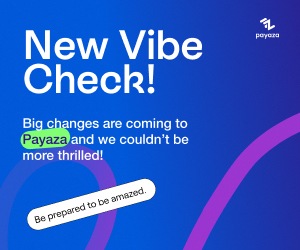The Central Bank of Nigeria (CBN) has urged the Deposit Money Banks (DMBs) to allow zero balance for the opening of new accounts, as part of the efforts to promote greater financial inclusion across the country.
In addition, the banks are also expected to simplify their account opening processes, while adhering to Know-Your-Customer (KYC) requirements in the push towards financial inclusion.
READ: This is where PSB, CBN got it all wrong
READ: CRR: Banks suffer N917.5 billion debits in latest CBN action
This disclosure was made in the Monetary, Credit, Foreign Trade and Exchange Policy Guidelines for 2020/2021 fiscal year, which was issued by the Central Bank of Nigeria (CBN).
While stating that these measures are part of the efforts to encourage banks to intensify deposit mobilization during the 2020/2021 fiscal years, the apex bank also encouraged banks to develop new products that would provide greater access to credit.
READ: Nigeria @ 60: The Banking Sector and the Nigerian economy
A part of the report reads, “As part of its effort towards promoting greater financial inclusion in the country, the bank shall continue to encourage banks to intensify deposit mobilization during the 2020/2021 fiscal years. Accordingly, banks shall allow zero balances for opening new bank accounts and simplify their account opening processes, while adhering to Know-Your-Customer requirements.
READ: Lagos Rail Mass Transit: House of Assembly approves N153 billion for construction
“Banks are also encouraged to develop new products that would provide greater access to credit.”
In addition, the apex bank said that the Shared Agency Network Expansion Facility (SANEF), which was established to enhance the provision of financial services access points in under-served and unserved locations and drive financial inclusion through agent banking, would continue in the 2020/2021 fiscal years.
READ: CBN launches framework for advancing women’s financial inclusion in Nigeria
It states that banks, mobile money operators, and super-agents would continue to render returns in the prescribed formats and frequency to the CBN.
























CBN always refuse to use the right channel to bring out farmers money. Like making use of bank of Agriculture (BOA). The bank is good .
It’s a good initiative. That will attract customers to banks.
We are happy to know this.Agency banking is increasing in all parameters.Its mutual benefits to the DMBs and the populace is enormous.
Those agents pos outlets has made banks to stopped funding their ATM machines because they gain more from those agents.
Increasing the risks of ATM frauds. If someone mistakenly misplace his card and somebody happens to picked it up,and have access which so ever to your pin, will their be any camara in those outlets that can identify the image of the withdrawer?. The answer is no. Corruption and extortion starts from Nigeria Government.
Those agents pos outlets has made banks to stopped funding their ATM machines because they gain more from those agents.
Increasing the risks of ATM frauds. If someone mistakenly misplace his card and somebody happens to picked it up,and have access which so ever to your pin, will their be any camara in those outlets that can identify the image of the withdrawer?. The answer is no. Corruption and extortion starts from Nigeria Government.
Chike I must confess you are good at what you do
Focus on bank cheating customers with too much transaction fees.